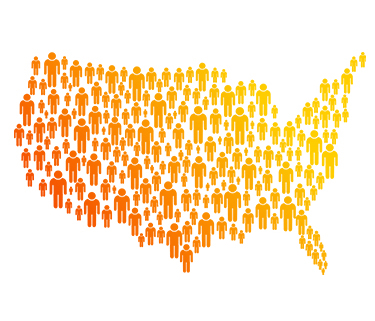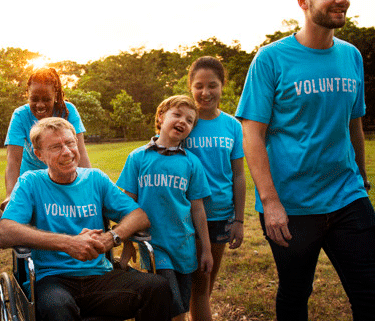Change Your World: Kick-Start Your Disability Advocacy With The Arc
For nearly 75 years, The Arc has been on the frontlines of the disability advocacy movement, fighting for the issues that matter most to people with disabilities and their families. The Arc is a grassroots organization with nearly 600 state and local chapters, all pushing for the full inclusion of people with disabilities on the federal, state, and local levels.
Every day, people with disabilities and allies across the country—just like you—are advocating to build a more inclusive world. And with everything that is on the line right now, we need every person who cares about disability rights and equality to step up and join our fight for inclusion for future generations. We need YOU!
So, what are you waiting for? You can join us RIGHT NOW and become a fierce disability activist! Here’s how:
- Find out who your members of Congress are: The Arc provides an easy way to see who your Senators and Representatives are. Head on over to our Action Center and enter your zip code in the Find Your Elected Official box on the righthand side. Once you know who your members of Congress are, visit their website and review their priority issue areas. Using this knowledge, you can tell them how important it is to include disability issues in legislative discussions.
- Connect with your state and local chapters of The Arc: Discover who your state and/or local chapters of The Arc are and where they are located. Visit their website to learn how you can get involved.
- Follow your members of Congress on social media: When Congress is in session, you can follow along with your members’ current legislative actions on places like Twitter—even if you don’t have an account! When they work on an issue that matters to you and/or aligns with The Arc’s Action Alerts, this is the moment when your outreach will make the greatest impact. Get in touch with them directly or through The Arc’s Action Center to share why they should support a position that benefits the disability community.
- Visit The Arc’s Action Center: The Arc’s Action Center (thearc.org/action) houses all The Arc’s current action alerts. Clicking on the alert you are interested in will lead you to a page with more information where you can send a note to your members of Congress showing your support. You can use our prefilled template or write your own. Once you have filled in your contact information and completed your submission, click the button at the bottom to submit your note.
Now that you are equipped with The Arc’s four key advocacy steps, get out there and start advocating for the disability community! Remember, take pictures of your advocacy when possible and share them on social media. Don’t forget to tag The Arc of the United States in your posts.
We can’t wait to see you out there!












